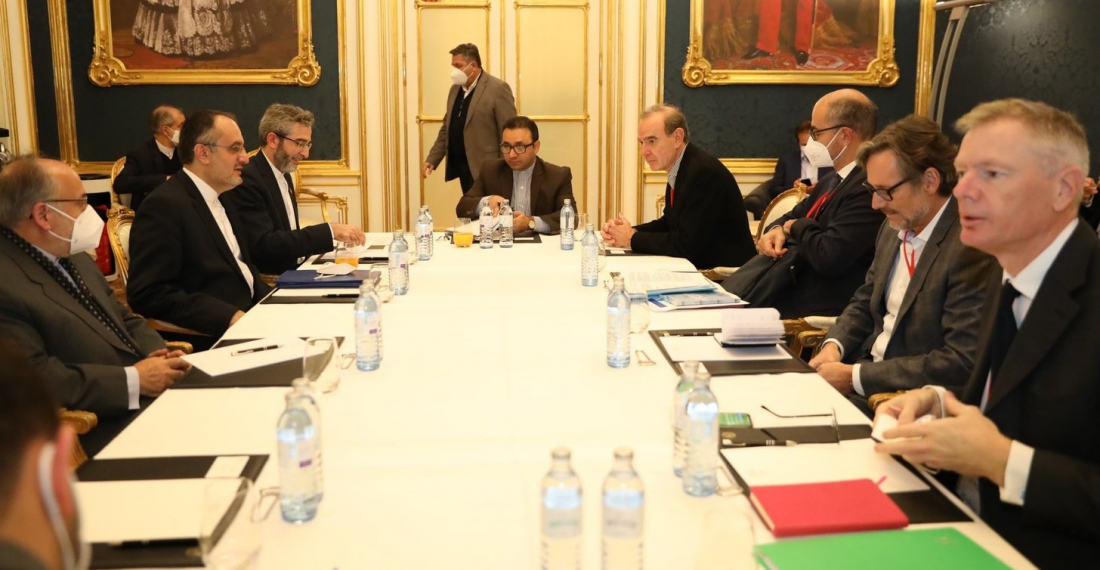The seventh round of talks between the JCPOA countries and Iran — and the first one with the new Iranian government — were suspended on Friday (3 December) after European countries claimed that Iran walked back from all previous diplomatic progress. The talks are suspended till next week as negotiators head back to their capitals to seek instruction on the new situation.
The European countries claimed that Iran walked back from its compromises and added new demands. European countries say it is unclear how gaps can be closed in a short timeframe and there is a risk talks will fail by next week.
During the previous six rounds, negotiators had put forward a comprehensive proposal for the lifting of economic sanctions and worked out ways to restrict Iran’s nuclear program but during this latest round of talks, Tehran demanded sweeping changes to those texts which the European negotiators found unrealistic. Politico Europe reported that even China and Russia, who are generally more understanding of the Iranian stance, supported the European viewpoint.
It is believed that the new demands by the Iranian negotiators are related to the new sanctions imposed by Joe Biden which Iran says are not related to the nuclear deal and so resulted in a hardening of Iranian demands. Iran’s chief negotiator, Ali Bagheri Kani, said that his county was seeking a comprehensive deal and the removal of unjust US sanctions.
Before the suspension, Iran submitted two documents to the negotiators which detail Iran’s proposals on how to lift the sanctions and scale down the country’s nuclear advances. However, the US says it only wishes to lift sanctions “inconsistent” with the JCPOA, keeping in place other sanctions it says are related to human rights abuses or “terrorism”.
The talks had resumed on Monday in Vienna after a long break following the election of the new leadership in Iran. Despite the failure of the seventh round, European countries see no alternative but to the return to the deal.







